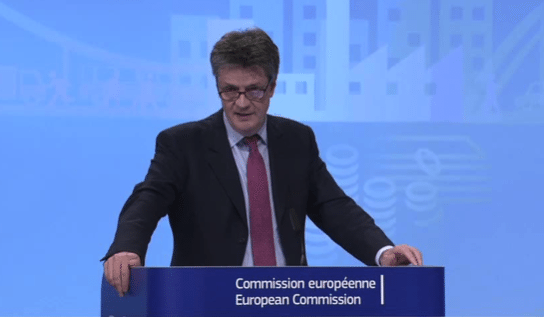The European Commission, as part of the Capital Markets Union (CMU), has published a working document on investment crowdfunding as it seeks to boost access to capital for SMEs. The relevance of the publication is even more important in light of the tepid economic growth being experienced across Europe. The document views crowdfunding as a crucial variable in growing the economy and driving opportunity. The demand to broaden finance for innovative young firms is buttressed by the fact that startups contribute a disproportionate amount to job creation. The authors state that 60% of startups survive at least three years. and in doing so generate 42% of new jobs. But the environment remains challenging as “securing investment finance is challenging for these firms.”
In addition to providing an alternative source of financing, crowdfunding delivers additional benefits;
“it can give a proof of concept and idea validation to the project seeker; it can help attract other sources of funding, such as venture capital and business angels; it can give access to a large number of people providing the entrepreneur with insights and information; and it can be a marketing tool if a campaign is successful.”
The EU believes that while relatively small today, if propitious frameworks are in place, crowdfunding can become a key source of financing for SMEs over the long term.
Jonathan Hill, Commissioner for Financial Stability, Financial Services and Capital Markets Union, has been a consistent advocate in support of SMEs. Hill stated;
“As part of our work to improve the funding conveyor belt for businesses, we are keen to support the development of crowdfunding models as a source of financing for entrepreneurs with bright ideas, start-ups and other SMEs. Our focus is on promoting best practice, appropriate investor protection and consistency of national regimes. We will continue to monitor market and regulatory developments closely.”
 Referencing data points, the report states approximately €4.2 billion was raised via debt or equity crowdfunding during 2015 in member states. The UK remains, by far, the most evolved and active region. While a small portion of the finance industry overall, the growth was dramatic having risen from €1.6 billion in 2014. The CMU action plan intends to “strengthen the different sources for alternative finance, including crowdfunding. The central tenant of the CMU is to reduce regulatory hurdles within member states and streamline cross-border financial transactions. Recently the European Parliament jumped into the mix by advocating the prospectus requirement should only be necessary for companies raising €20 million or more (the commission has proposed a € 10 million requirement level) . Currently, that level is €5 million – acting as an effective cap on investment crowdfunding rounds in certain situations.
Referencing data points, the report states approximately €4.2 billion was raised via debt or equity crowdfunding during 2015 in member states. The UK remains, by far, the most evolved and active region. While a small portion of the finance industry overall, the growth was dramatic having risen from €1.6 billion in 2014. The CMU action plan intends to “strengthen the different sources for alternative finance, including crowdfunding. The central tenant of the CMU is to reduce regulatory hurdles within member states and streamline cross-border financial transactions. Recently the European Parliament jumped into the mix by advocating the prospectus requirement should only be necessary for companies raising €20 million or more (the commission has proposed a € 10 million requirement level) . Currently, that level is €5 million – acting as an effective cap on investment crowdfunding rounds in certain situations.
 The paper recommends that to “promote the growth of crowdfunding and appropriately protect investors, EU Member States have put in place a range of measures to regulate crowdfunding – either using the EU legislative framework where appropriate or via national regimes.” The authors add the caveat that “there is no strong case for an EU-level framework at this juncture.”
The paper recommends that to “promote the growth of crowdfunding and appropriately protect investors, EU Member States have put in place a range of measures to regulate crowdfunding – either using the EU legislative framework where appropriate or via national regimes.” The authors add the caveat that “there is no strong case for an EU-level framework at this juncture.”
The paper includes a comparison of national regulatory environments. It is generally accepted within the investment crowdfunding industry that the UK has taken the most enlightened approach with light touch regulations and constant communication amongst industry participants.
The EU will continue to explore and communicate with the various stakeholders as it continues to propose initiatives to encourage crowdfunding as an alternative source of finance.
The report is embedded below.
[scribd id=311352168 key=key-LBio8cKZHKE1NbyAsgoy mode=scroll]



